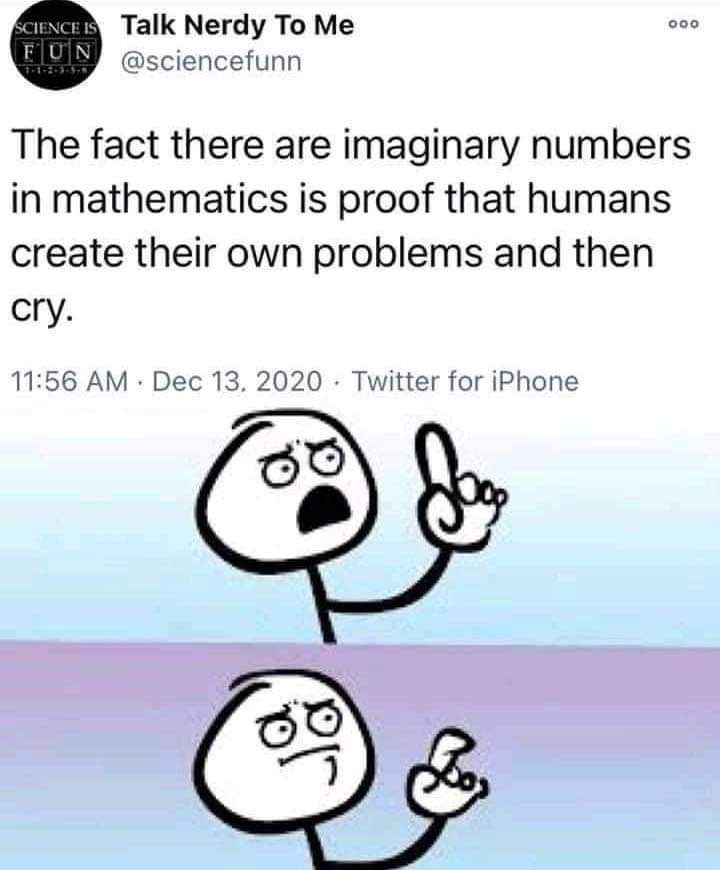this post was submitted on 16 Sep 2024
719 points (93.3% liked)
memes
15612 readers
2730 users here now
Community rules
1. Be civil
No trolling, bigotry or other insulting / annoying behaviour
2. No politics
This is non-politics community. For political memes please go to !politicalmemes@lemmy.world
3. No recent reposts
Check for reposts when posting a meme, you can only repost after 1 month
4. No bots
No bots without the express approval of the mods or the admins
5. No Spam/Ads
No advertisements or spam. This is an instance rule and the only way to live.
A collection of some classic Lemmy memes for your enjoyment
Sister communities
- !tenforward@lemmy.world : Star Trek memes, chat and shitposts
- !lemmyshitpost@lemmy.world : Lemmy Shitposts, anything and everything goes.
- !linuxmemes@lemmy.world : Linux themed memes
- !comicstrips@lemmy.world : for those who love comic stories.
founded 2 years ago
MODERATORS
you are viewing a single comment's thread
view the rest of the comments
view the rest of the comments

Imaginary numbers are the proof that even in mathematics you can discover stuff even though you don't understand what you have found. Complex numbers encode rotation.
Yup. When you have a circuit that is not purely resistive the inductive or capacitive load causes the voltage and current to not be in phase. It looks like ohms law is being violated. However the missing part of the energy is in the imaginary component to be returned latter.
But that is hardly a 'natural occurence' of complex numbers - it just turned out that they were useful to represent the special case of harmonic solutions because of their relationship with trig functions.
No. It's more what the previous poster said about encoding rotation. It's just not a xyz axes. It's current, charge, flux as axes. The trig is how you collapse the 3d system into a 2d or 1d projection. You lose some information but it's more useful from a spefic reference.
Without complex numbers you can't properly represent the information.
The natural representation would be the transient solution u(t) or i(t). Harmonic solutions are merely a special case, for which it turned out complex numbers were useful (because of the way they can represent rotation). They certainly serve a purpose there, but imo this is not an instance of 'complex numbers appearing in nature'.
Ever since I went down a particularly nasty rabbit hole and came out with a tenuous grasp on quaternions, imaginary numbers started feeling very simple, familiar and logical.
Yeah. The thing that made me "get" quaternions was thinking about clocks. The hands move around in a 2d plane. You can represent the tips position with just x,y. However the axis that they rotate around is the z axis.
To do a n dimensional rotation you need a n+1 dimensional axis. So to do a 3D rotation you need a 4D axis. This is bassicly a quat.
You can use trig to get there in parts but it requires you to be careful to keep your planes distinct. If your planes get parallel you get gimbal lock. This never happens when working with quats.
I still maintain that quats are the closest you can get to an actual lovecraftian horror in real life. I mean, they were carved into a stone bridge by a crazy mathematician in a fit of madness. How more lovecraftian can you get?